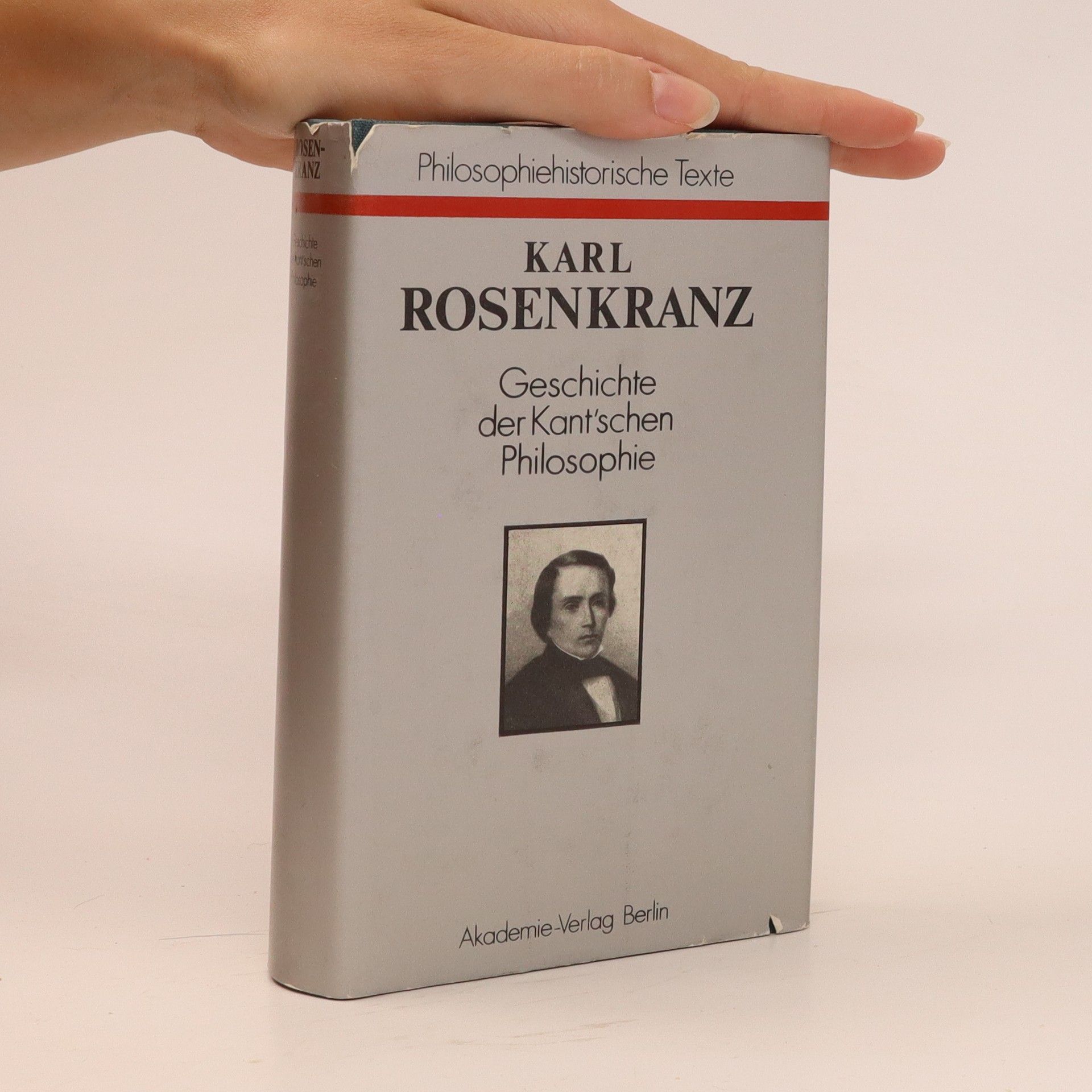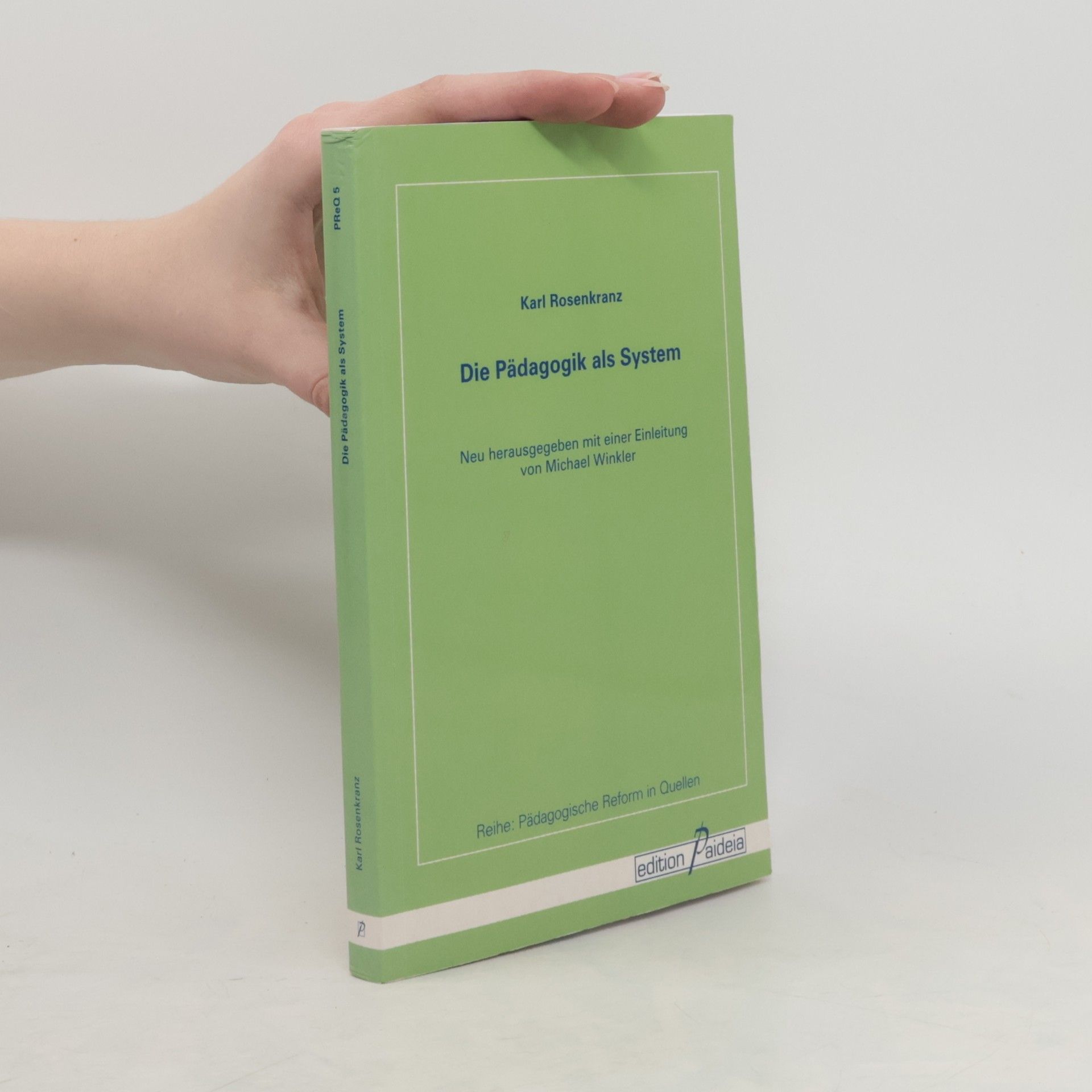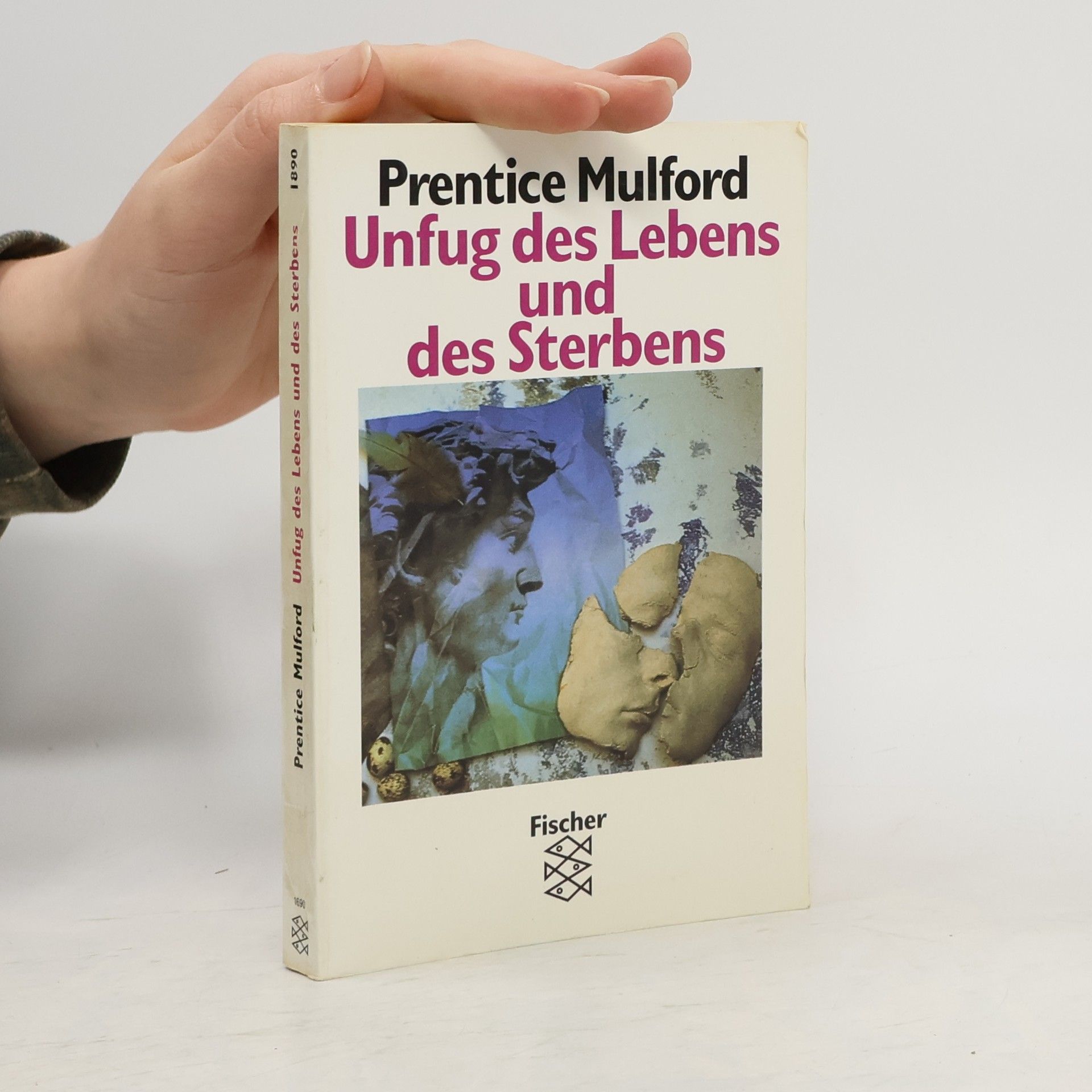Haben wir es noch nötig zu sterben? Oder sterben wir nur, weil wir glau-ben, daß wir es müssen? Sollten wir nicht lieber leben lernen - denn richtig leben wird sterben überflüssig machen! Durch eine Vielzahl köstlicher Essays zieht sich wie ein roter Faden diese Aufforderung: doch von unserem Kleinmut und unserer geistigen Enge zu lassen und uns statt dessen aufzuschwingen zu der Freiheit und der Macht des Bewußtseins, das wir in Wirklichkeit sind und das unseren Traum vom ewigen Leben - im Körper auf der Erde - Wirklichkeit werden lassen kann.
Karl Rosenkranz Livres
Dévoué disciple de la philosophie de Hegel, Rosenkranz a appliqué ses recherches intellectuelles à la sphère politique. Il a exercé en tant que professeur de philosophie, contribuant au paysage universitaire de Königsberg. Sa pensée a abordé un large éventail de sujets, laissant un impact durable sur le discours philosophique. L'œuvre de Rosenkranz demeure pertinente pour ses aperçus sur l'intersection de la philosophie et de la gouvernance.






„Die Pädagogik als System“ von Karl Rosenkranz ist ein bemerkenswertes Buch mit ungewöhnlicher Geschichte: Im Revolutionsjahr 1848 erschienen ist es in Deutschland völlig in Vergessenheit geraten. In den USA hingegen ist es seit 1873 bis heute vielfach in gedruckt und oft diskutiert worden. Das Buch stellt einen der wenigen konsequenten Versuche dar, anknüpfend an Hegels Philosophie den Begriff der Erziehung systematisch und umfassend zu entfalten. Der Ansatz fasziniert und überzeugt noch heute mit der Klarheit der Gedankenführung und einer bestechenden Aktualität. Zugleich kann das Werk als eine Fundgrube für das in der Mitte des 19. Jahrhunderts verfügbare Wissen um Erziehung, Unterricht und Bildung gelten. Rosenkranz hat es mit breiter Kenntnis und ungewöhnlicher Sorgfalt aufgenommen und kritisch kommentiert. Man übertreibt kaum, wenn man „die Pädagogik als System“ als eine der wichtigsten Wiederentdeckungen in der Geschichte der pädagogischen Theoriebildung bezeichnet. Prof. Dr. Michael Winkler ist Inhaber des Lehrstuhls für Allgemeine Pädagogik und Theorie der Sozialpädagogik an der Friedrich Schiller Universität Jena. Seine Arbeitsgebiete sind Theorie und Geschichte der Pädagogik, Friedrich Schleiermacher und Friedrich Fröbel; Theorie der Sozialpädagogik, Jugendhilfe und Probleme des Übergangs von Schule in den Beruf. Veröffentlichungen zuletzt u. a. „Kritik der Pädagogik“ (2006), bei IKS: Lesen (2004)
Ästhetik des Hässlichen
- 440pages
- 16 heures de lecture
In seinem noch immer aktuellen und gut lesbaren Grundlagenwerk der Ästhetik und Kunstkritik aus dem Jahre 1853 stellt Karl Rosenkranz erstmals die "nicht-mehr-schönen-Künste" in den Mittelpunkt der systematischen Analyse. An Beispielen aus Literatur und bildender Kunst analysiert und entfaltet er seine Ästhetik des Häßlichen: vom Alltäglichen, Niederen und Gemeinen bis zum Obszönen, Ekelhaften und Diabolischen.
Der erste Band der "Neuen Studien zur Kulturgeschichte" bietet einen unveränderten Nachdruck der Originalausgabe von 1875. Er beleuchtet bedeutende Aspekte der Kulturgeschichte und präsentiert historische Analysen sowie Erkenntnisse, die zur Vertiefung des Verständnisses von kulturellen Entwicklungen beitragen. Dieser Nachdruck ermöglicht es modernen Lesern, die Perspektiven und Denkweisen des 19. Jahrhunderts nachzuvollziehen und deren Einfluss auf die heutige Kultur zu erkennen.